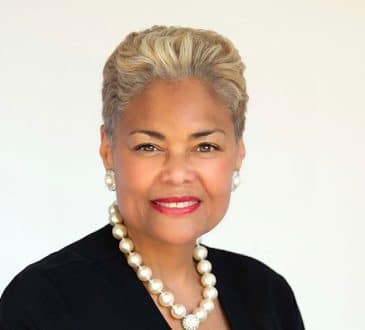Being Adaptable: The importance of a flexible leader

Everywhere I go the requirement for organizations, teams and leaders to adapt to ongoing socioeconomic, political and security hazards is on the rise. The momentous changes of the first two decades of the 21st century, including China’s economic rise and the financial meltdown, were just the beginning. The next major wave is surging relentlessly ahead, demanding leaders who can steer their companies through complexity and change.
In Leadership 2030, authors Georg Vielmetter and Yvonne Sell (2014) drew from original research conducted jointly with foresight company Z-Punkt and further analysed by Hay Group, which uncovered six megatrends that will dramatically impact organizations’ markets, cultures, systems and processes:
- Globalization 2.0: Asia dominates the global economy
- Climate change: sustainability becomes imperative
- Individualism: freedom of choice erodes loyalty
- Digitization: boundaries blur between private and working lives
- Demographic changes: ageing populations intensify the talent war
- Converging technologies: the sharpest tech shift in history is around the corner
Their research findings highlight that one of the most important skills to cultivate as a leader is adaptability. This has never been so relevant following the coronavirus outbreak which has brought a twin threat to lives and livelihoods. It has surfaced multiple leadership challenges including economic, organizational and people. The pressures can seem daunting. Managing the sudden shutdown of the global economy was hard enough; working out how to restart in such an uncertain environment has thrown up even more issues and leaders are expected to provide clarity, consistency, calm and the courage of conviction during these unprecedented times.
The Self-Disruptive Leader
Pre COVID-19 studies conducted by the management consulting firm Korn Ferry, were shared in a 2019 published report called “The Self-Disruptive Leader” based on the analysis of 150,000 leadership profiles. They identified five aspects of future-ready leadership, which they called the ADAPT dimensions encompassing the ability to “anticipate, drive, accelerate, partner and trust.” They noted that “companies with leaders who aren’t future-ready face a double bind: not only are they less able to adapt to the changing business environment, they may face a penalty from those who evaluate their businesses.”
This insight was reinforced in an interview with Dr Kai Reinhardt, Professor for Economics and Digital Organization, University of Applied Sciences for Engineering and Economics Berlin. He said:
In our research we have looked at how AI will impact the future of leaders. One interesting finding is that many people are already getting influenced by AI through reports and systems without realizing it. Leaders need to consider organizations as a combination of artificial and human skills, what I call super skills. If you fail to embrace machine learning it can be a dangerous situation because your behaviour will come to rely on AI; however, your thinking will still resist it. It’s essential to be friendly towards AI. Accept it. Understand what is going on, consider how your skills work in partnership with AI to create a valuable set of capabilities and adapt accordingly.
Another perspective to consider comes from an interview with Angela Brav, President Hertz International. She explained:
Technology is changing the way we do business, including how we interact with customers, get feedback in real time and train our employees. But it’s important to remember that in any business human interactions are a crucial part of what we do. I see technology more as an enabler than a solution.
How well do you adapt?
One man whom I’m coaching prides himself on being adaptable. From Italian roots, Paolo had left his homeland as a student against the will of his family, determined to succeed in the UK. Arriving in London with very little money, prospects or knowledge of the English language, he quickly set himself up in humble quarters, took whatever work he could find and continued his education as a lawyer.
Over time, Paolo got his qualifications and took his first role in a private law firm. He looked at the lives of senior partners and realized that law was not his future. Paolo decided to move into the commercial arena. A savvy negotiator, he progressed quickly in the retail sector; however, after several years he decided on another change and took his commercial skills into the infrastructure sector. Becoming immersed in some large programmes, Paolo loved the tangible element of delivering projects; however, his love of change took him into the world of technology where he is leading the transformation of an organization through helping them get ready for automation and the implications that it has on changing services and culture.
I wanted to understand more about Paolo’s wiring and ability to adapt to different professions, sectors and roles. At the heart of his adaptability he has a passion for learning, growth and making big change happen. He thrives on the unknown and loves the challenge of ambiguity. Paolo relishes being in situations where answers are not predictable, and results come about as a consequence of close collaboration. He is comfortable with being uncomfortable and allowing ideas to emerge without having preformed views. He is willing to take ideas from a wide range of sources, while not being attached to how he has done things in the past.
I am not advocating that to be a successful leader you need to have had three different professions; however, I have identified three ingredients which are essential to stay ahead of the curve.
Adopt a change mentality. How do you read the following statement?
OPPORTUNITYISNOWHERE
Did you see ‘opportunity is nowhere’ or ‘opportunity is now here’? Adaptability starts with a mindset that embraces growth and change. If change is your enemy and you catch yourself craving for the nostalgia of ‘the way things used to be done,’ it poses a threat to your ability to adapt. I am a great believer in the practice of taking the best from the past and leaving the rest. There will be real gems in what has come before; however, the velocity of change today and the prerequisite to doing things differently will take you out unless you shift your mindset.
As Keith Barr, Chief Executive Officer, InterContinental Hotels Group explained in an interview:
My biggest learning for leading change is to be inquisitive. Take the time to balance intuition with curiosity. The older I get the more I realize I don’t know! At 21 I thought I knew everything. Now I realize how much I don’t know. The challenge is how to keep an organization curious. Change is the new world order. Everything is happening so quickly it is essential to adopt a constant change mentality and be willing to challenge the status quo. You need to take a broad view and explore everything including the competition, technology, talent, systems and culture.
I love the idea of adopting a constant change mentality. Ask yourself: what if I had a constant change mentality? What would I do more of, less of, or differently?
Being Adaptable Toolkit
- Adopt a change mentality. Be deliberate about being an advocate of change. Anticipate change. Talk about change. Help others adapt to change.
- Thrive on velocity. Install a plan, build and run approach which enables you to navigate day-to-day speed.
- Be mindful. Practise mindfulness. Start with 60 seconds. Pay attention to your breathing.
- Let go. Ask yourself, ‘What can only I do?’ Everything else, delegate. This will force you to let go and focus on the big stuff.
Bring the best of the CEOWORLD magazine's global journalism to audiences in the United States and around the world. - Add CEOWORLD magazine to your Google News feed.
Follow CEOWORLD magazine headlines on: Google News, LinkedIn, Twitter, and Facebook.
Copyright 2025 The CEOWORLD magazine. All rights reserved. This material (and any extract from it) must not be copied, redistributed or placed on any website, without CEOWORLD magazine' prior written consent. For media queries, please contact: info@ceoworld.biz











